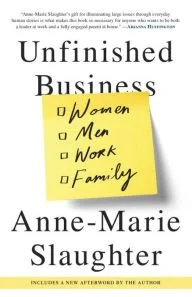Letting Your Light Shine A personal Reflection
A personal Reflection on Awards, Fears, and Rewriting Old Narratives
I just received a big honor—the Brattleboro Region Chamber Person of the Year. Symbolically, it represents a lot in our community of Southeastern Vermont. It feels like one of those pinnacle moments in life. As I sat down to write this newsletter, I found myself trying to strike that “delicate balance”—wanting to share the news without sounding like I’m bragging. I thought about weaving in the thread from my acceptance speech on Bloom Where You’re Planted, which reflects so much of how I’ve tried to live. And yet, if I’m honest, what sits beneath the surface is a lifelong fear: that standing out might cost me belonging. That some might think, Who does she think she is? Or that others might compare themselves harshly and pull away. This is an old wound I continue to work on, but the inner voice still lingers. Today, I want to bring it into the light, to name it and change the narrative—as Marianne Williamson so beautifully invites us to do:
Our deepest fear is not that we are inadequate.
Our deepest fear is that we are powerful beyond measure.
It is our light not our darkness that most frightens us.
We ask ourselves, who am I to be brilliant, gorgeous, talented and fabulous?
Actually, who are you not to be?
You are a child of God.
Your playing small does not serve the world.
There’s nothing enlightened about shrinking so that other people won’t feel insecure around you.
We were born to make manifest the glory of God that is within us.
It’s not just in some of us; it’s in everyone.
And as we let our own light shine, we unconsciously give other people permission to do the same.
As we are liberated from our own fear,
Our presence automatically liberates others.
What I’ve just shared isn’t just my story — it’s the story of so many women leaders I work with. We’ve been conditioned to “walk a narrow band” when it comes to leadership. Be strong, but not too strong. Be successful, but not too visible. Be smart but not too smart.
This dynamic is sometimes described as the “Power Dead Even Rule” — where men’s relationships can stay intact even when one has more authority, but women often risk a rupture of connection when they rise higher. Success can come with a hidden tax: research shows that for women, unlike men, there is often a negative correlation between success and likeability.
Add to this the cultural messages many women receive: be nice, avoid conflict, don’t stand out too much. And then there’s the scarcity effect: studies on representation show that when women or minorities see only a few seats at the table reserved for people like them, it creates competition for those scarce opportunities. This isn’t imagined — it’s the reality of many organizational systems. Yet getting one of those seats can feel risky and isolating, and research shows that for women it’s particularly lonely at the top. Those without a seat can be envious and unsupportive.
What can we do?
For women: Notice the voice of “shrinking” when it shows up. Pause and ask: Is this really my belief, or is it a cultural script I’ve absorbed? Then, when possible, practice standing fully in your power and competence — with kindness, but without apology. And look for opportunities to name and celebrate the achievements of other women, helping to shift the narrative for all of us.
For men: Be intentional about celebrating women’s achievements without qualifying them. Recognize and interrupt the double standard when you see it (e.g., ambition praised in men but questioned in women). And look around the tables you influence: if there are only one or two women or minorities, consider how you can broaden access so leadership is not a zero-sum game.
For all of us: Work to create a culture where recognition and appreciation is abundant, not scarce. Instead of centering success on just a few, let’s celebrate the many contributions that make our communities and organizations thrive. It’s important to notice the full range of ways people lead and contribute — including those who spread their energy broadly across relationships and responsibilities (a pattern more often seen in women) — not only those who pursue a singular, high-profile achievement (more often expected and rewarded in men).
So, when I feel that tension — the joy of being honored alongside the fear of being judged — it’s not just “my issue.” It’s a mirror of these broader patterns. And it’s why Williamson’s words matter so much: “As we let our own light shine, we unconsciously give other people permission to do the same.” How have you experienced the tension between being celebrated and fearing judgment? How did you navigate it? Drop me a note, I’d love to hear.
Great Link
An iconic clip from The Barbie Movie on how a woman needs to be: (2:32)
Reflection Exercise: Moving from Theory to Action
To support you in celebrating successes with confidence:
When have you achieved something meaningful and, instead of fully celebrating, worried about how others might perceive you?
Do you notice the “voice of shrinking” in yourself — the impulse to play small so others won’t feel uncomfortable?
In what ways have you seen success and likeability linked (or in tension) in your own life or in the lives of women around you?
What would it look like for you to “let your light shine” in a way that not only honors your own gifts but also gives permission for others to step into theirs?
Is there anyone you want to acknowledge for their success? By when will you reach out to them?
Quarterly Quote
And the day came when the risk to remain tight in a bud was more painful than the risk it took to blossom. –-Anais Nin
Book Review
Unfinished Business: Women, Men, Work & Family
By: Anne-Marie Slaughter
Unfinished Business may be a decade old, but it’s still deeply relevant. Author Anne-Marie Slaughter pushes us to rethink how we define success, showing that true equality won’t come from individual women “having it all,” but from reshaping the systems that undervalue caregiving and narrowly reward linear career paths. What I especially appreciate are three chapters—“Half-Truths for Women,” “Half-Truths for Men,” and “Half-Truths in the Workplace”—where she names the false narratives that shape all of us, regardless of gender. Her call for cultural and structural change—at work, at home, and in society—remains a powerful reminder that leadership is about creating conditions where both women and men can thrive in ways that honor their whole lives, not just their résumés.





